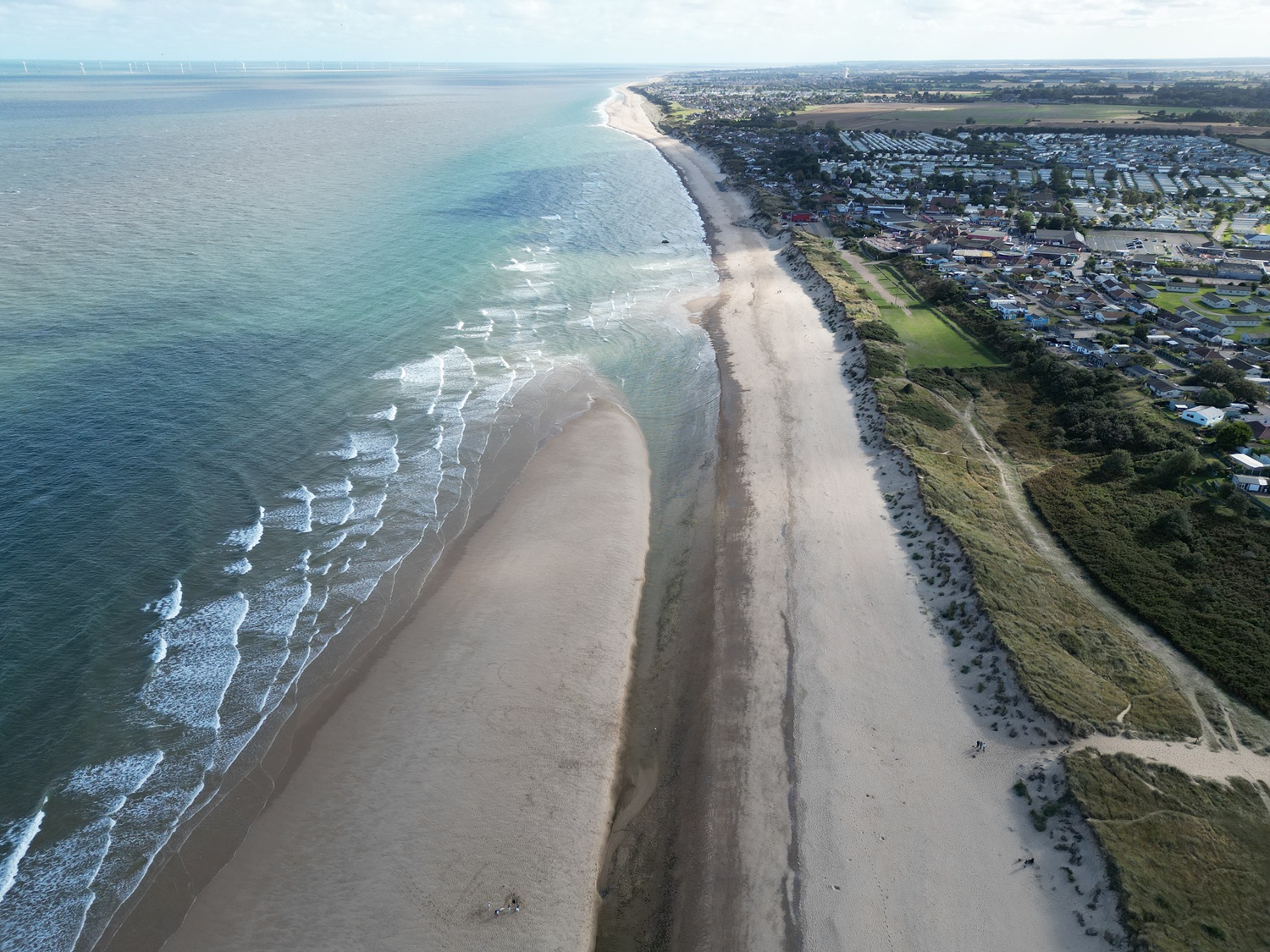
Many communities across the UK are living with the impacts of coastal erosion, none more so than in the East of England.
There, some areas are currently seeing the coastline recede by several metres per year, and this will accelerate with sea level change. Homes, businesses and assets are often lost to the sea, with the effects extending far beyond the shore. Cascading impact can be felt on services, the economy and community cohesion.
It is not always feasible, affordable or even desirable to protect the entire coast against erosion. Continued release of sediment is often an essential component of a well-functioning and resilient coast: when erosion removes sediment from one area, it can be deposited somewhere else, and that continual supply of sediment is required to maintain healthy beaches.
At present, the communities impacted by erosion in England are not funded or supported in adapting to accelerating coastal change, despite the important function and economic benefit of the continued supply of sediment. Therefore, East Suffolk Council on behalf of the Resilient Coasts project, appointed Moffatt & Nichol to lead a team from the British Geological Survey, University College London and Risk & Policy Analysts to explore the concept of the Circular Sediment Economy Simulator.
This work aims to develop projections of coastal change across a frontage of more than 50 miles over the next 30 years, utilising emerging modeling tools to simulate how these complex coastal systems respond to human interventions and the effects of sea level change.
Alongside this, a benefits framework is being developed to quantify the economic impact of different interventions over time. For the first time, the economic benefit of sediment released to our coastlines is being quantified utilising an ecosystems services approach, not just in terms of flood and erosion risk, but to the coast as whole, for example in providing healthy beaches for amenity, or dune habitats.
By linking the services provided by sediment back to its source, we aim to quantify the value erosion provides to the nation, which can in time be utilised to justify investment to enable the affected communities to adapt to unprecedented rates of change.
The project is being delivered in an integrated way, with the East Suffolk Council and Great Yarmouth Borough Council team integral to the development of the geomorphological and economic models, to equip them with the knowledge and skills to utilise these tools, and provide them with a lasting legacy.
The Resilient Coasts project is funded by Defra as part of the £200 million Flood and Coastal Innovation Programmes which is managed by the Environment Agency. The programmes will drive innovation in flood and coastal resilience and adaptation to a changing climate.


